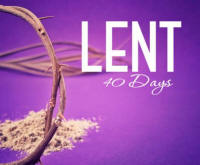|
|
“FIRST IMPRESSIONS”
Second Sunday of Lent
March 16, 2025
Genesis 15:
5-12, 17-18; Psalm 27;
Philippians 3: 17-4:1; Luke 9: 28-36
By: Jude Siciliano, OP |

Printer
Friendly |
Dear Preachers:
"First Impressions" is a free weekly
preaching and liturgical resource. Go to our one-minute online video to meet the
author and learn more about our ministry:
https://www.youtube.com/watch?v=ikoG4JD8vZ8 Then, please make a
donation to help us continue this ministry of God’s Word.
Please pray for us, as we do for you, our benefactors, each day.
Send tax deductible checks (made out to “Dominican Friars”) to:
Dominican Friars Preaching Resources
3150 Vince Hagan Dr.
Irving, Texas 75062-4736
Or: For an online donation go to:
https://www.PreacherExchange.com/donations.htm
Thank you.
 The few verses (15:1-4) preceding
today’s Genesis reading narrate an exchange between God and Abram. God has
promised that Abram and Sarai will have an heir, but Abram challenges God,
protesting that they are still childless. Abram—later Abraham—has always been a
model of biblical faith; in fact, today’s passage states, “Abram put his faith
in the Lord....” However, his faith was not the reason for God’s blessing.
Rather, God took the initiative, freely promising descendants to Abraham and
Sarai. God is quick to give gifts, while we humans often hesitate to trust. We
seem like sleepwalkers who need to be awakened to God’s constant love and
presence. The few verses (15:1-4) preceding
today’s Genesis reading narrate an exchange between God and Abram. God has
promised that Abram and Sarai will have an heir, but Abram challenges God,
protesting that they are still childless. Abram—later Abraham—has always been a
model of biblical faith; in fact, today’s passage states, “Abram put his faith
in the Lord....” However, his faith was not the reason for God’s blessing.
Rather, God took the initiative, freely promising descendants to Abraham and
Sarai. God is quick to give gifts, while we humans often hesitate to trust. We
seem like sleepwalkers who need to be awakened to God’s constant love and
presence.
The fact is, Abraham’s faith was awakened by God’s persistence. The stars serve
as a sign of the aged couple’s innumerable descendants. Abram surrenders to
God’s plan and trusts in God’s power. He is “right” with God; we are told that
God “credited it to him as an act of righteousness.” If we were asked to
articulate our faith, we might list the things we believe. But Abraham’s story
reveals that faith is not just about doctrine—it is about a relationship.
Abraham believed that God would do what God said, and that is the invitation
extended to all believers. What proof did God give Abraham to confirm his faith?
Nothing concrete or immediate—just a promise. God made a covenant with him.
Animal rights advocates may shudder at the description of how this covenant was
ratified—a selection of animals was slaughtered. But we must remember we are in
ancient times, and our faith ancestors understood the symbolism. Traditionally,
when such a covenant was made, both parties would pass between the split
animals, signifying: “May what happened to these animals happen to me if I break
this covenant.”
Night falls, and Abraham enters a deep sleep, enveloped in “a deep, terrifying
darkness.” We are in the realm of mystery. Then a smoking pot and flaming torch
pass between the split animals—symbols of God. What is Abraham’s role in all of
this? He is merely an observer of the mystery. He has no active part in sealing
the covenant. God alone passes between the animals. This is a recurring biblical
theme: in the divine-human exchange, God always acts first. Abraham is not
tested in faith and then rewarded with a covenant. Instead, God takes the first
step, makes a binding promise, and invites Abraham to respond with trust. And
that is what Abraham does—what we are invited to do as well.
But what proof does Abraham have when challenges arise? Can he pull out a
tangible sign of reassurance? Does he receive a magical object to strengthen his
faith when life becomes difficult? No—he has only God’s word. And that must be
enough. Like Abraham and Sarai, we, too, must keep listening and trusting in
that word. That is our part in the covenant.
This is the very message given to the frightened disciples at the
Transfiguration: “This is my chosen Son; listen to him.” Jesus’ life—what he
says and does—is the word God gives them to trust. They must keep their eyes and
ears open, their hearts ready to respond. Like Abraham, they must wake up to the
presence of the divine.
Lent is wake-up time. At first glance, we may not think we are asleep—quite the
contrary! Modern life demands so much of us. We work hard to balance time and
energy among family, work, friends, church, and community needs. The days of
spontaneous visits from friends dropping by for coffee are long gone. Who has
the time? If we want to visit, we must schedule it in advance. Outwardly, we are
wide awake—though often sleep-deprived. But how often do we take even a brief
pause to truly awaken—to reflect on what matters?
For instance, do we ask ourselves: Does my spirit need refreshing? Where is God
present in my daily life? Do I need to rekindle friendships or tend to a fading
one? How do I respond to those in need? What or whom have I been avoiding? We
say, “Life is full,” but in truth, our spirits may be like the disciples on the
mountain—“overcome by sleep.”
Before today’s Transfiguration account, Jesus told his disciples that he would
be rejected, suffer, and die in Jerusalem (Luke 9:18–22). Peter had just
proclaimed Jesus as the Messiah but misunderstood how Jesus would fulfill that
role. Not only would Jesus suffer, but he also told his disciples that they,
too, must take up their cross and follow him (9:23). The Transfiguration
immediately follows this revelation, and the voice from the cloud affirms Jesus'
identity while directing the awestruck and fearful disciples to listen to him.
The disciples’ fear and confusion do not end there. They descend from the
mountain, and their illusions of success and glory crumble as Jesus faces
growing opposition. They could have used reassurance, and they had it—if only
they had remembered their experience on Mount Tabor. The voice told them what to
do: “Listen to Jesus.” But they forgot the hope they witnessed in his glory.
They became spiritual amnesiacs.
Being a disciple means remembering whom we follow. As the voice declares, Jesus
is “the chosen Son.” He was glorified not only on the mountain but also in his
suffering, death, and resurrection. The Transfiguration already echoes the
Resurrection. We disciples must remember that the Risen Christ—the glorified
One—continues to act and speak in our lives. He is the one we listen to. Lent is
a time to recommit to that listening—through prayer, Scripture, and the
Eucharist.
It is hard to stay focused on Christ when life is chaotic. Crises and
distractions throw us off balance, and we forget to “listen to him.” We forget
his presence in both the struggles and the joys of our lives.
Luke’s Gospel emphasizes Jesus’ prayer life more than any other. He prays before
making important decisions and frequently retreats to be alone with God. Today,
Luke tells us that Jesus was transfigured “while he was praying.” His openness
to God and his mission was nurtured in prayer. The disciples, on the other hand,
were asleep—both in Gethsemane and on the mountain. Luke reminds us that we must
remain awake to discern God’s presence and purpose in our lives. Jesus
understood who God was and trusted in God’s plan because he met God in prayer.
And so must we.
The Transfiguration is a Lenten reminder that we are called to prayer—not just
to ask for things or make small talk with God, but to open ourselves to
transformation. In prayer, we hear Christ anew and discover what he is saying to
us in our lives today. The voice from the mountain was not speaking only to
those disciples long ago—it speaks to us now. We are called to be constant
listeners as we journey with Jesus toward Jerusalem.
Mountain climbing is supposed to be an exhilarating sport—not that I would know,
as I’m afraid of heights! But I do know that mountains can be dangerous places.
People have died on them. In the Bible, mountains are places where people
encounter God, but such encounters can be life-threatening.
Meeting Christ is a kind of mountain experience. In him, we encounter God, and
that encounter can be dangerous—it can change our lives. Truly listening to
Christ may mean letting go of false securities and accepting his way. It
requires daily choices that run counter to what the world tells us leads to
success and happiness. He calls us to take up our crosses and follow him.
Abraham and Sarai had no lucky charm to reassure them when their journey grew
difficult. They had only God’s covenant and promise. And what do we have? We
have Jesus—our covenant with God—an unbroken word that God has not and will not
abandon us.
So, what should we do this Lent? Find ways and places to listen to Christ—just
as the voice on the mountain commands us to do today.
Click here for a link to this Sunday’s readings:
https://bible.usccb.org/bible/readings/031625.cfm
QUOTABLE
Almsgiving is the mother of love, of that love
which is characteristic of Christianity,
which is greater than all miracles,
by which the disciples of Christ are manifested.
---St. Ambrose of Milan
JUSTICE BULLETIN
BOARD

It was
on that occasion that the Lord made a covenant with Abram.
—Genesis 15: 18
A covenant is very different than a contract. The
term “contract” refers to an agreement over the exchange of goods and services
while the term “covenant” is an exchange between persons. In ancient Israel,
covenants created familial bonds between two parties and often stipulated mutual
privileges and responsibilities. Imagine Abram’s surprise when God bears all the
responsibility in the unconditional promises God makes to Abram. Abram doesn’t
have to do anything except be himself. And who is Abram? He is a person of
righteousness who puts all his faith in God.
As Catholic Christians, we are people of the New Covenant mediated by Jesus
(Hebrews 9:15). We have been given many privileges by our covenantal
relationship as sons and daughters of God and it is up to us to act and live so
as to honor the Giver of these gifts. How can we do this? The Works of Mercy are
good answers, as we can share the gift of love that has been given so
unconditionally to us.
This 2nd Sunday of Lent, our outreach ministries that feed the hungry are
featured in the narthex of the Cathedral and helping in these ministries is a
great way to honor God who is present to us as the living bread from Heaven, the
Eucharist.
Help our oldest meals ministry, Helen Wright Women’s Shelter, by being part of a
team to supply and serve dinner once a month. Coordinators: Ann Petro (even
months) and Amy Klabon (odd Months)
Participate by contributing to the Catholic Parish Outreach Spring Food
Collection. We are handing out grocery bags this weekend for collection next
weekend. Coordinator: Susan Borghoff
Join the early dinner teams at Oak City Cares Center on the 2nd and 3rd
Saturdays of every month. Coordinators: Kathleen Privette & Ed Pollard (2nd
Sat.) and Elizabeth White (3rd Sat,)
Assist with lunches at the Women’s Center, a day shelter for homeless women.
Coordinator: Leni Crook
Hunger prevails throughout the world. Consider forming a team to participate in
the Crop Hunger Walk in October, Coordinator: Mary Catherine Hinds
Aid in quenching thirst—Share the Blessings helps build clean water wells in
Uganda as well as drawing from the well of knowledge by helping schools there.
Coordinator: Kevin Green
Live a covenantal Christian life. Mercy works.
Barbara Molinari Quinby, MPS,
Director
Office of Human Life, Dignity, and Justice
Ministries
Holy Name of Jesus Cathedral,
Raleigh, NC
FAITH BOOK

Mini-reflections on the Sunday
scripture readings designed for persons on the run. “Faith Book” is also brief
enough to be posted in the Sunday parish bulletins people take home.
From today’s Gospel reading:
And behold, two men were conversing with Jesus,
Moses and Elijah, who appeared in glory
and spoke of his exodus,
that he was going to accomplish in Jerusalem.
Reflection:
Lent gives us an opportunity to do what Jesus and
his disciples did: come apart to spend time in prayer, reflection and listening.
Then, strengthened and guided by prayer, we will move on to the next stage of
our journey with trust that God will nourish us each day of our “exodus.”
So, we ask ourselves:
-
What quiet space can I open up for myself this
Lent to listen to God’s voice?
-
What “journey” or change in my life, am I
being invited to make?
POSTCARDS TO
DEATH ROW INMATES
“One has to strongly affirm that condemnation
to the death penalty is an inhuman measure that humiliates personal dignity,
in whatever form it is carried out."
---Pope Francis
Inmates on death row are the most forgotten people
in the prison system. Each week I am posting in this space several inmates’
names and locations. I invite you to write a postcard to one or more of them to
let them know that: we have not forgotten them; are praying for them and their
families; or, whatever personal encouragement you might like to give them. If
the inmate responds, you might consider becoming pen pals.
Please write to:
-
John S. Badgett #0014016 (On death row since
5/6/2004)
-
Paul D. Cummings #0523493 (9/8/2004)
-
Alexander Polke #0801680 (2/7/2005)
----Central Prison P.O. 247 Phoenix,
MD 21131
Please note: Central Prison is in
Raleigh, NC., but for security purposes, mail to inmates is processed through a
clearing house at the above address in Maryland.
For more information on the Catholic position on
the death penalty go to the Catholic Mobilizing Network:
http://catholicsmobilizing.org/resources/cacp/
On this page you can sign “The National Catholic
Pledge to End the Death Penalty.” Also, check the interfaith page for People of
Faith Against the Death Penalty: http://www.pfadp.org/
DONATIONS
“First Impressions” is a service to
preachers and those wishing to prepare for Sunday worship. It is sponsored
by the Dominican Friars. If you would like “First Impressions” sent
weekly to a friend, send a note to fr. John Boll, OP at
jboll@opsouth.org.
If you would like to support this ministry, please
send tax deductible contributions to fr. Jude Siciliano, O.P.:
St. Albert Priory
3150 Vince Hagan Drive
Irving, Texas 75062-4736
Make checks payable to: Dominican Friars.
Or, go to our webpage to make an online donation:
https://www.PreacherExchange.com/donations.htm
RESOURCES
ORDERING OUR CDs:
We have compiled Four CDs for sale:
-
Individual CDs for each Liturgical Year, A, B
or C.
-
One combined CD for “Liturgical Years A, B and
C.
If you are a preacher, lead a Lectionary-based
scripture group, or are a member of a liturgical team, these CDs will be helpful
in your preparation process. Individual worshipers report they also use these
reflections as they prepare for Sunday liturgy.
You can order the CDs by going to our webpage:
https://www.PreacherExchange.com
and clicking on the “First Impressions” CD
link on the left.
OTHER
PUBLICATIONS BY EMAIL:
1. "HOMILÍAS DOMINICALES" ---These Spanish
reflections on the Sunday and daily scriptures are written by Dominican sisters
and friars. If you or a friend would like to receive these reflections drop a
note to "Fr. John J. Boll, O.P." <preacherexchange@att.net>
2. "VOLUME 2" is an opportunity for you to hear from the readers of First
Impressions. To subscribe or Send your own reflections: Send them to "Fr.
John J. Boll, O.P." <preacherexchange@att.net > Your contributions to
Volume 2 are welcome.
OUR WEBSITE:
https://www.PreacherExchange.com
- Where you will find Preachers Exchange, which includes "First Impressions,"
"Homilías Dominicales," and "Volume 2" as well as articles, book reviews, daily
homilies and other material pertinent to preaching and Scripture reflection.
FOR EMAIL
HELP OR TO UNSUBSCRIBE, SUBSCRIBE, OR CHANGE:
Email "Fr. John J. Boll, O.P." <preacherexchange@att.net>
FIRST IMPRESSIONS Archive
(The latest are always listed first.)
• Lent-2nd Sunday •
• Lent-1st Sunday •
• 8th SUNDAY •
• 7th SUNDAY •
• 6th SUNDAY •
• 5th SUNDAY •
|